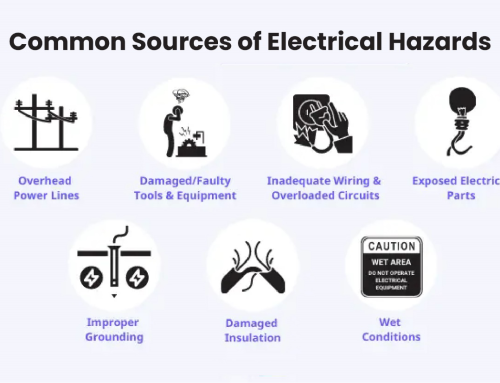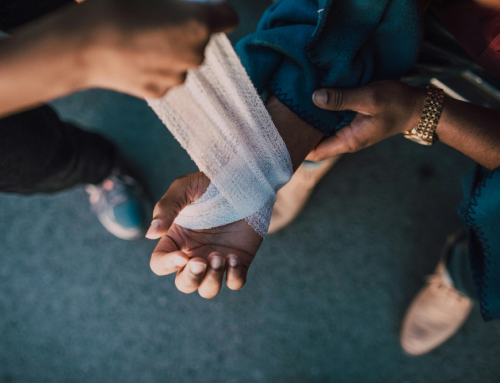It’s not unusual that casual discussions take a bad turn and transform into heated arguments in the blink of an eye.
It’s hard to keep your words, tone and demeanor in check when you’re so invested in a debate. The consequences can be ugly if someone gets hurt—emotionally and physically—at the end.
This is why professional decorum is so necessary. It’s in situations like these that it becomes even more important to adopt a mature approach for handling disagreements.
Nonetheless, accidents are inevitable and it’s better to be prepared if any such thing happens. Here are a few common scenarios that might result in injuries and ways to deal with them.
Macrotrauma
Injuries that fall under this category are ones that need to be addressed at your earliest. They’re of a much more severe nature like a shoulder dislocation, a second-degree burn, fracturing a bone, or suffering from serious impact. This could be a result of punching a hard surface like a wall or a fight escalating into something big.
The best way to address a dislocated shoulder is to restrict movement on angles that make the pain worse and call for help. It’s important to follow a doctor’s directions step-by-step in such cases to avoid complicating the matters more.
Microtrauma
Traumas on a micro scale occur due to an extended period of tissue damage which results in a permanent injury. This can happen during series of aggressive physical actions, lack of proper nutrition, or continuously repressing stressful thoughts.
The best course of action is to take a break from activities and events that are triggering trauma or causing stress. If it’s a muscle sore or twisted ankle, give your affected area some rest. Refrain from working out the injured muscle or moving the affected joint.
Tissue damage
Punching or kicking can injure your limbs by damaging tissues. Tissue damage can result in inflammation which stays for a period of 3 days at least. The wound swells and becomes red as a way of healing the damaged cells. This process is painful which is why the patient may complain of physical discomfort even during recovery.
The treatment plan that should follow includes a 4-step response:
- Rest:stop doing whatever is causing pain and take time to recover.
- Ice:ice the affected area for about 10 minutes 3-4 times a day to bring down the swelling.
- Compress:firmly wrap the swollen area with bandage to ease the pain.
- Elevate:keep your affected area in an elevated position to regulate blood flow. Make sure the elevation is 45 degrees to the level of your heart.
Mental trauma
A trigger as mundane as a fight at work can induce stress in your overworked, already stressed-out mind. Depending on your mental stability, you may or may not respond well to such stimuli. This can result in an anxiety attack, panic or short breathing.
To help a person suffering from this condition, help them calm down by practicing deep breathing. It may sound little but oxygenating your blood goes a long way in releasing stress.
Help them hydrate their bodies and offer them a recluse away from the high-traffic area where the fight is happening. Allowing them to rest in an empty conference room or a quiet place will be helpful. If needed, call help to better address the issue.
Looking for training programs to deal with emergency situations at work?
At Metro Safety we offer first-aid training, which is a very important life skill for handling workplace emergencies. We provide first aid training courses and work place safety tools and have been serving the community since 2008.
We are based in Coquitlam BC, which is in close proximity to the Braid Street Sky Train. We also cater to Vancouver, Burnaby, and Coquitlam in British Columbia.
If you’re interested in training for work place safety, sign up ASAP.








